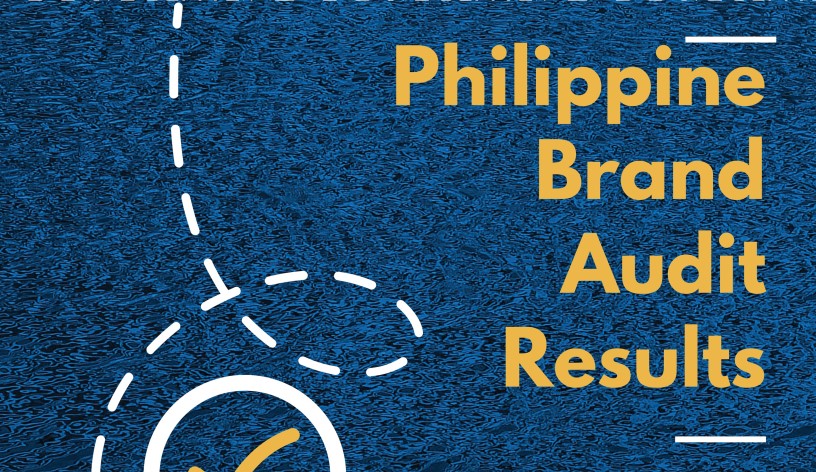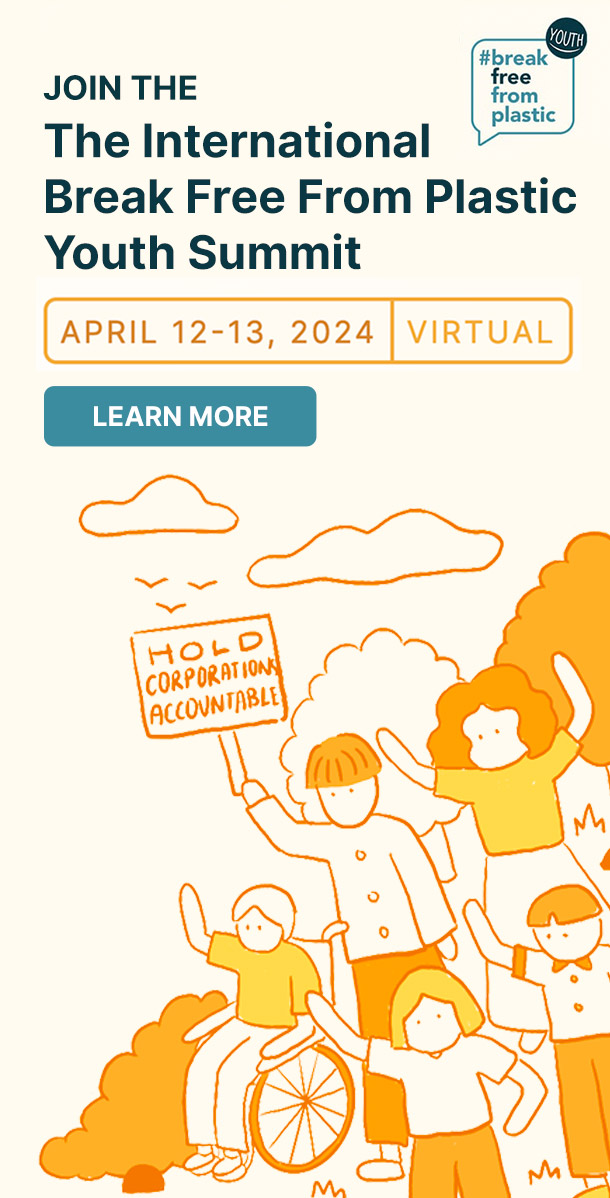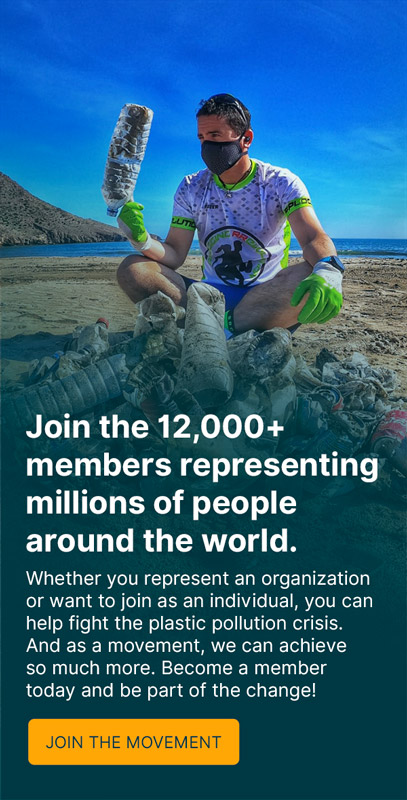QUEZON CITY, Philippines, 19 March 2021 - Members of the #BreakFreeFromPlastic movement today renewed the call for the government to impose a nationwide ban on single-use plastics to mandate corporations to end dependence on single-use plastics. The call came following the release of the Philippine version of the 2020 Brand Audit Report [1], which found that only three corporations are responsible for nearly 50 percent of the country’s plastic waste.
According to the report, fast-moving consumer goods (FMCG) companies Universal Robina Corporation (URC), Nestle, and Colgate-Palmolive were the top three corporate plastic polluters in 2020. The three corporations’ packaging waste accounts for 46 percent of the total of 38,580 plastic items [2] collected: 6,350 for URC, 6,168 for Nestle, and 5,580 for Colgate-Palmolive [3].
“The local results of the 2020 brand audit show not only the extent of the plastic pollution that local communities have to deal with, but more importantly, they also reveal the faces behind the pollution: corporations that until now have refused to own up to their responsibility by peddling false solutions to the plastic problem, and remain opaque in their plastics reporting,” Greenpeace Campaigner Jefferson Chua said. “These corporations have been consistent top polluters as well for the past two years [4], and have done nothing substantial to tackle plastic reduction at its source. Instead, they pursue programs that unfairly pass the responsibility to consumers.”
The report also revealed that an alarming 91 percent of the total collected plastics were non-recyclables, such as sachets, which have no economic value to incentivize collection and which cannot be managed sustainably. The groups said that this figure proves that recent efforts by FMCGs to boost their so-called recycling efforts are completely useless in addressing plastic pollution in the Philippines.
The groups also raised concern over companies’ continued reliance on false solutions to the plastic problem rather than investing on measures to phase out plastic production. This includes replacement of plastic straws for equally disposable items such as paper and bioplastics, recycling and plastic exchange schemes, and resorting to harmful practices such as incineration.
The #BreakFreeFromPlastic Movement views the passage of a comprehensive Single-Use Plastic Ban as an essential policy tool to stop plastic pollution by shifting corporate dependence on throwaway packaging models to more sustainable to more sustainable reuse and refill systems.
Patricia Nicdao, Policy and Advocacy Officer of EcoWaste Coalition said: “With a deluge of single-use plastic wastes created by corporations, what Filipinos need are real and urgent solutions to this plastic crisis. We can no longer afford any more excuses and delays. While individuals and Local Government Units are doing their part, the 18th Congress needs to step up its efforts by passing a comprehensive law banning single-use plastics in the Philippines. This policy can significantly advance other local efforts to preserve and protect our environment.”
Likewise, they advocate the use and mainstreaming of alternative delivery systems such as refilling stations and other workable community-based solutions that aim to move away from single-use, throwaway business models that currently dominate the market.
The report is available for download here.
# # #
[1] Brand Audits are citizen-led actions that involve counting, analyzing, and documenting different types of plastics, their brands, and their respective recyclability. Brand Audits are globally-coordinated events where the Philippines has been a pioneering participant since 2017.
[2] The wastes were collected in Bohol, NCR, and Davao with partner groups EcoWaste Coalition, Greenpeace, Interfacing Development Interventions for Sustainability (IDIS), and Project Mariknows.
[3] Aside from the aforementioned three, other brands also figured as top polluters: Mayora Indah (3,869), Unilever (2,922), Procter & Gamble (2,622), Monde Nissin Corporation (1,420), Nutri-Asia, Inc. (1,067), Liwayway Holdings (1,022), and Jbc Food Corporation (662). Other plastics collected either were from other brands or were unbranded, such as plastic labo.
[4] In the 2019 edition of the Brand Audit, Nestle and URC figured in the top three as well, with URC also showing up in the 2018 edition.
Media contacts:
Angeli Cantillana
Communications Campaigner, Greenpeace Southeast Asia – Philippines
angeli.cantillana@greenpeace.
Geri Matthew Carretero
Communications Officer, Break Free From Plastic Philippines Project
geri@breakfreefromplasticph.




